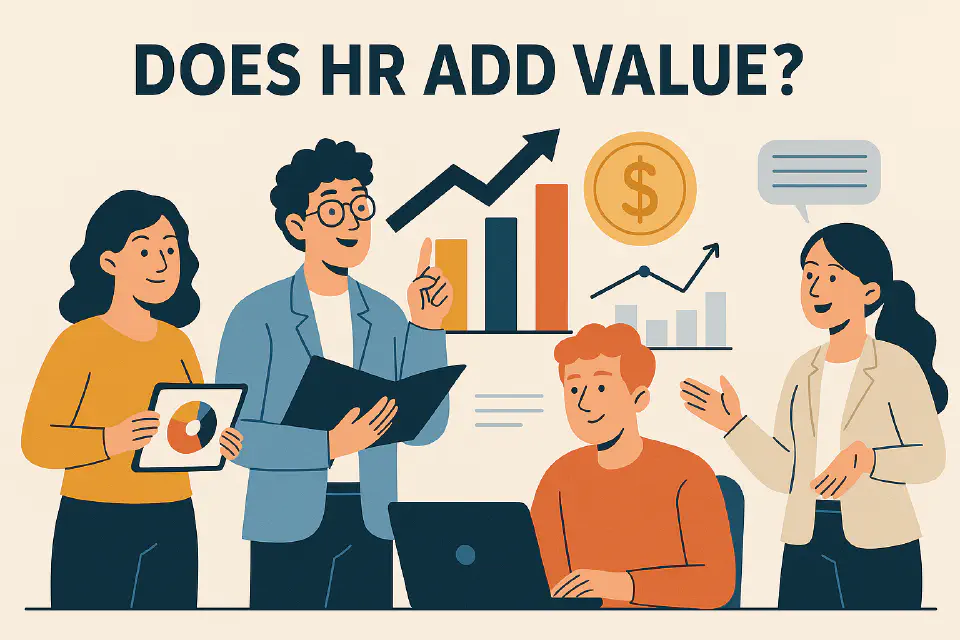
Does HR Add Value?
HR is often praised as a strategic partner — and just as often dismissed as overhead. So what’s the truth? This page explores the impact of HR from multiple angles: business outcomes, employee experience, and organizational culture.
The Debate: Is HR a Cost Center or Value Creator?
The question has existed for decades. Some executives see HR as a compliance-heavy, process-oriented function — necessary, but not strategic. Others argue that HR drives performance, innovation, and long-term sustainability.
Common criticisms:
- HR is reactive, not proactive
- It slows things down with bureaucracy
- It focuses too much on policies and not enough on people
Counter-arguments:
- Good HR reduces legal, financial, and reputational risk
- It builds systems that scale growth
- It shapes the employee experience — and thus productivity and retention
Where HR Clearly Adds Value
There are areas where HR’s impact is tangible and measurable:
📈 Hiring & Onboarding
- Reduces time-to-productivity
- Increases retention in first 12 months
🌱 Learning & Development
- Builds internal capability
- Supports succession and leadership pipelines
🧠 Engagement & Culture
- Boosts motivation, loyalty, and performance
- Reduces turnover and absenteeism
🧾 Compliance & Risk Management
- Protects against lawsuits, audits, and data breaches
When HR Fails to Add Value
Not all HR is value-creating. Poorly designed or executed HR functions can:
- Create confusion instead of clarity
- Enforce policies without empathy
- Undermine trust between employees and leadership
- Focus on vanity metrics (e.g. number of trainings) rather than outcomes
In such cases, HR becomes a blocker rather than a builder.
What Makes HR Strategic (vs. Administrative)?
Strategic HR:
- Aligns its work with business goals
- Uses data to guide decision-making
- Partners with leaders across departments
- Anticipates challenges and prepares the workforce
Administrative HR:
- Focuses on forms and policies
- Waits for problems to arise
- Operates in silos
Perspectives from the Business
From the CEO:
“HR should help us hire better, grow faster, and avoid risk. I need them to understand the business, not just the handbook.”
From Finance:
“If HR helps us keep our top people, reduce attrition costs, and build leadership pipelines — that’s clear ROI.”
From Employees:
“Good HR listens, protects, and helps me grow. Bad HR just says no.”
Measuring HR’s Impact
Key metrics include:
- Time to hire / cost per hire
- Turnover (voluntary and regretted)
- eNPS (employee net promoter score)
- Internal promotion rate
- Learning effectiveness (pre/post skill assessments)
- Absenteeism and engagement trends
Final Thought: It Depends on the HR You Build
The question isn’t whether HR can add value — it’s whether your HR does.
If HR is passive, reactive, or disconnected from business priorities, its impact will be minimal. But if HR is bold, strategic, and people-first, its contribution can be transformative.